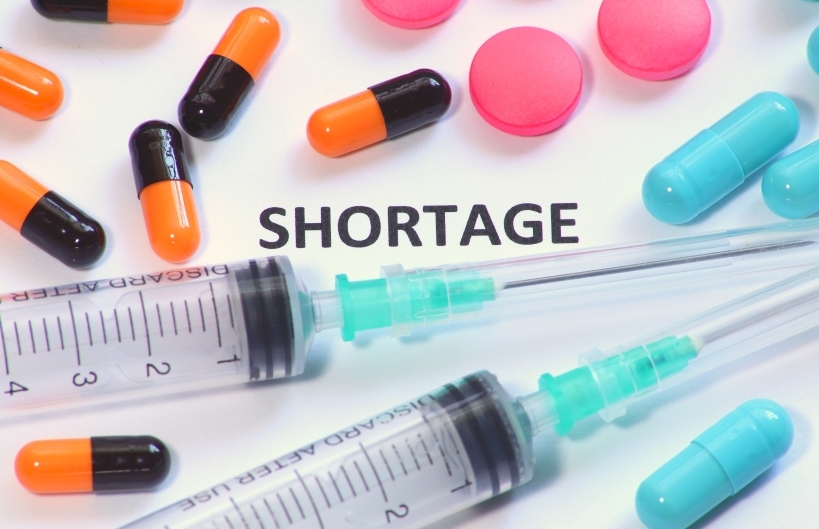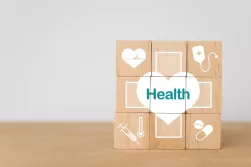Hospitals and healthcare providers continue to face challenges due to drug shortages. As we know, shortages affect both patient care and treatment protocols. Many life-saving medications have been identified in short supply, posing potential risks to patient outcomes and requiring strategic management and alternatives by healthcare professionals. Hospitals must stay ahead by ensuring the availability of robust strategies to manage these shortages, ensuring that patient care remains uninterrupted and safe.
Here are some actionable strategies and reminders to consider for managing drug shortages effectively.
Strategies for Managing Drug Shortages
Alternative therapies: Identify and validate alternative drugs or therapeutic modalities that can effectively replace the shorted medication without compromising patient care.
Supplier diversification: Work toward diversifying suppliers and manufacturers for critical drugs to reduce the impact of a shortage from a single supplier.
Usage guidelines: Implement guidelines for the use of drugs in short supply, prioritizing patients for whom the medication is most critical.
Stock management: Optimize stock levels by monitoring consumption patterns and adjusting stock levels accordingly to prevent overstocking and understocking.
Collaboration: Engage in collaborative efforts (if possible) with other hospitals and health systems for sharing resources during acute shortages.
Patient communication: Ensure transparent communication with patients regarding drug shortages, potential impact on treatment, and available alternatives.
Long-term Solutions
Advocacy: Participate in advocacy efforts aimed at addressing the root causes of drug shortages through regulatory reforms and industry engagement.
Technology adoption: Utilize technology for better forecasting and managing of drug inventories, including the use of artificial intelligence (AI) and machine learning algorithms.
Education: Keep the healthcare team informed and educated about managing drug shortages, including training on the use of alternative therapies and adjusting dosages.
Some Key Drug Shortages
These are a few of the current drug shortages, focusing on medications that may be critical for patients in the hospital setting. These medications are often used in acute settings, emergency care, or the treatment of serious conditions, making their availability crucial.
Amiodarone injection
Significance: Critical for use in the treatment for serious arrhythmias, such as ventricular tachycardia. Its importance lies in its ability to stabilize heart rhythms.
Ciprofloxacin injection
Significance: As a broad-spectrum antibiotic, ciprofloxacin injection plays a critical role in treating bacterial infections. It is especially valuable in treating infections in patients who cannot tolerate or absorb oral antibiotics.
Methotrexate injection
Significance: An essential chemotherapeutic agent and immunosuppressant used to treat various cancers. Its injectable form is crucial for cases requiring high bioavailability and rapid onset of action.
Midazolam injection
Significance: A benzodiazepine used for sedation, anxiolysis, and amnesia before medical procedures and in the ICU for sedating patients.
Nitroglycerin injection
Significance: Nitroglycerin is a critical medication used primarily in the management of acute episodes of angina pectoris and the treatment of heart failure associated with acute myocardial infarction. Its rapid vasodilatory effects can relieve chest pain by increasing blood flow to the myocardium and decreasing the heart’s oxygen demand.
Somatropin injection
Significance: A synthetic growth hormone, somatropin is used to treat growth hormone deficiency in children and adults. Its role is crucial in promoting normal growth and development in children.
For a detailed and up-to-date list of all current drug shortages, healthcare professionals should consult ASHP and FDA drug shortage lists directly. These resources offer comprehensive information on each shortage, including reasons for the shortage, available products, and estimated resupply dates, all of which are crucial for effective shortage management and patient care planning.
Drug shortages pose significant challenges to healthcare teams, requiring a proactive and strategic approach to ensure uninterrupted patient care. By staying informed about the current shortages and utilizing a combination of short-term management strategies and long-term solutions, hospital pharmacies can navigate these challenges more effectively.



